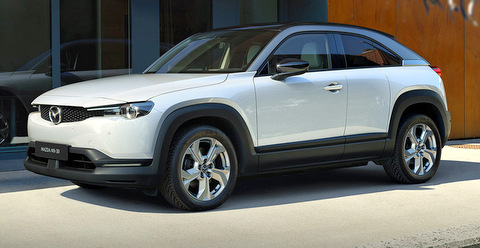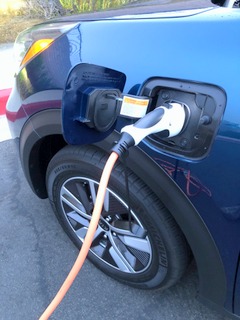Pros and Cons of the Electric Car Lifestyle
This article may contain affiliate links.
Electric vehicles have become more popular in the past few years thanks to technological advancements and a growing interest in sustainable living. Electric vehicles have many benefits over traditional gasoline-powered cars, including lower emissions, cheaper running costs and (often) government incentives. However, some drawbacks to owning an electric car should be considered before making the switch.
The Benefits of Driving an Electric Vehicle
There are several benefits to driving an electric car:
1. Lower emissions
While battery production for electric cars does produce some emissions, these emissions are dwarfed by the emissions produced by gasoline-powered vehicles. Since electric vehicles have no carbon emissions while running, they are much better for the environment than traditional cars.
As the world continues to move away from fossil fuels and toward renewable energy, electric cars will become even more environmentally friendly. Electric vehicles also have other emissions benefits. They produce no smog-forming pollution unlike gasoline cars, and they don’t release hazardous pollutants like carbon monoxide and benzene into the air.

2. Cheaper running costs
Gasoline prices fluctuate, but electric rates are stable and almost always cheaper. If you have a charger on your property that is powered by solar, your cost of driving your vehicle is practically zero. Electricity is also more efficient than gasoline, so you’ll get more kilometers out of each battery charge. In addition, electric cars have far fewer moving parts than gasoline cars, so there is less maintenance and repair cost.
3. Better performance
One of the most noticeable performance benefits of EVs is the instant torque that electric motors provide. This gives electric cars excellent acceleration, improving on the traditional transmissions with no gear changes.
In addition, electric cars are much quieter than gasoline-powered cars, providing a more relaxing and enjoyable ride. Since there is no engine noise, you’ll be able to hear other sounds more clearly, such as birds chirping or the wind rustling through the trees.
The Drawbacks of Driving an Electric Vehicle
Despite the many benefits, there are also some drawbacks to driving an electric car:
1. The cost of purchase
While the total cost of owning an EV is far cheaper than owning its gas-powered counterpart, the initial cost of purchasing an electric car is still high. Electric cars tend to be more expensive than gasoline cars because the technology is still new, and there are few economies of scale.
However, the cost of electric vehicles is dropping as battery technology improves and production increases. In addition, many governments offer incentives for purchasing an electric car, which can help offset the higher initial cost.
2. Limited range
The average electric car can travel between 100 and 300 miles on a single charge. While this is relatively similar to the average gasoline car’s range, electric cars can take much longer to charge compared to refueling a gas car.
At a supercharging station, you can expect to spend 30 minutes or longer to charge your car, whereas refueling a gasoline car only takes a few minutes. If you’re planning on taking long road trips, an electric car may not be the best option for you. However, for shorter commutes and errands, an electric car will likely have more than enough range.

3. Less access to charging stations in some areas
If you live in a big city like Los Angeles or San Francisco, you’ll be able to find electric car charging stations relatively easily. However, if you live in a smaller town or rural area, access to charging stations may be more limited.
This is gradually changing as the number of electric cars on the road increases and more companies install charging stations, but it is still something to consider if you’re thinking about purchasing an electric car.
4. Limited customizability
One of the biggest drawbacks of electric cars for some is that they are not as customizable as their gas-powered counterparts. For anyone who likes to shop at parts dealers like Monaco Motorsports for aftermarket components, the inability to customize exhaust, make the car louder or alter the performance is a significant drawback.
Endnote
Electric vehicles have many benefits, from being environmentally friendly to cheaper running costs. However, there are also some drawbacks, such as the high initial cost and limited range. Ultimately, whether or not an electric car is right for you depends on your driving needs and habits.
